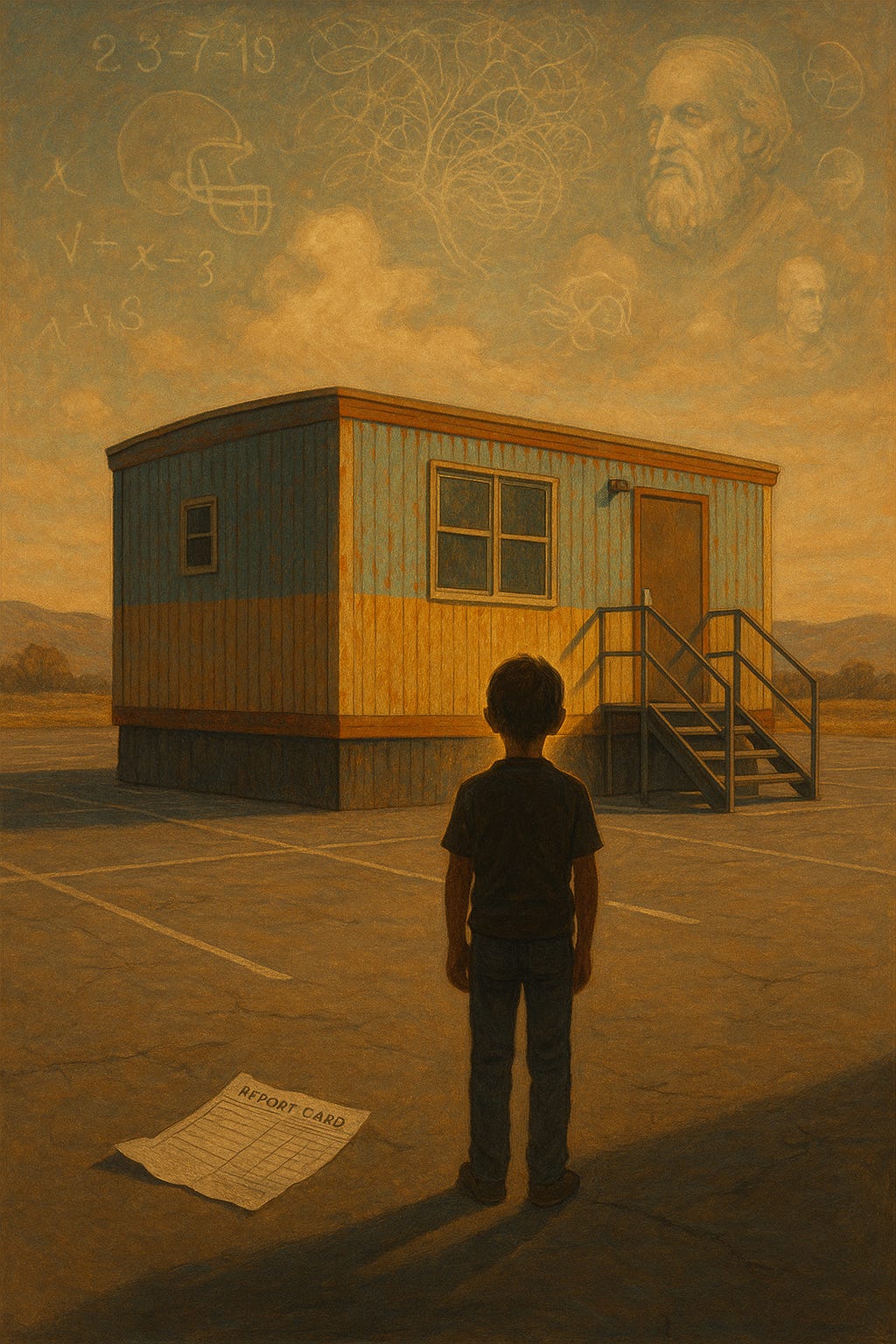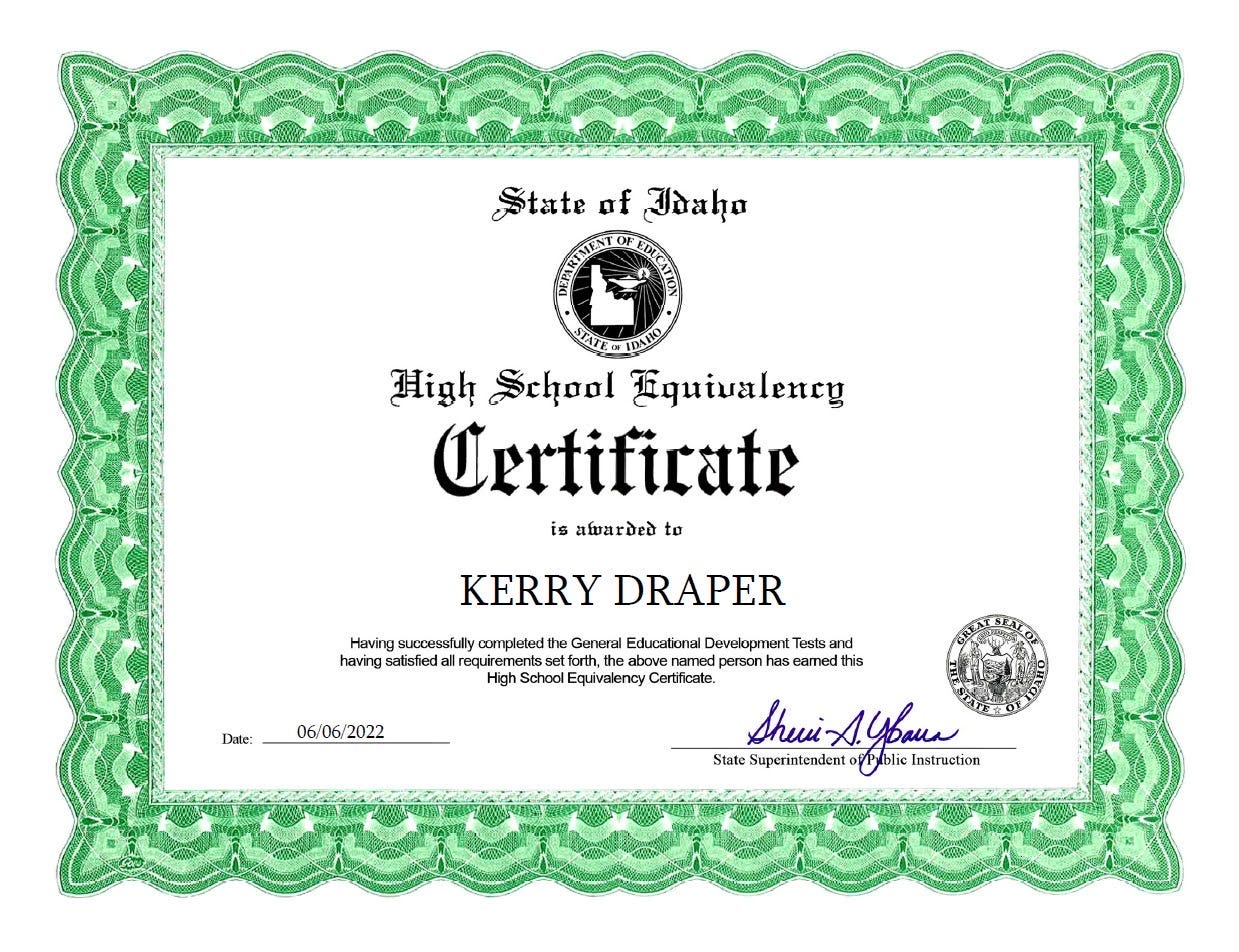🧠 Chapter 1: School Was My First Trauma
“I wasn’t afraid of school at first. That came later. But once the fear arrived, it never really left.”
📚 The Missing Memories
I don’t remember much from grade school. Most of those years are a blur—faded colors, half-formed faces, recess and noise. But what I do remember arrives sharp, specific, and painful: the fear of being asked to multiply or spell in front of the class. Times tables. Spelling tests. Simple things for some, but for me, they were public traps.
It wasn’t just that I didn’t know the answers—it was the shame of not knowing them out loud, in front of everyone. I felt stupid. I thought I was stupid. And that belief, once planted, grew fast.
When kids made fun of me, I lashed out. I was big for my age, strong, and when I hit back—it hurt. I didn’t mean to. But it happened. I remember the principal telling me, “You don’t know your own strength—you could really hurt someone.” My parents got called in. Again. And again. I didn’t have words for what I was going through, but my fists were fluent.
👓 Misunderstood
I remember getting glasses in grade school. I didn’t really understand why. I didn’t wear them long. Later, I found out I was partially color blind, though no one ever explained what that really meant at the time. I think the adults were grasping at anything that might help me “do better in school”—hoping maybe vision correction would fix whatever invisible thing was holding me back. It didn’t.
The truth is, the problem wasn’t my eyes. It wasn’t my attitude. It wasn’t even my ability. It was misunderstanding—by adults, by teachers, by a system that didn’t know what to do with kids like me. This was Pocatello, Idaho, in the 1970s and early ’80s. Back then, there was little understanding of Specific Learning Disabilities, and even less of what we now call ASD or neurodivergence.
They didn’t see a misunderstood learner. They saw a problem. A disruption. A kid who couldn’t follow the rules and sometimes hurt others when he was scared or ashamed.
But I could read. I could comprehend. I just couldn’t always perform in the ways school demanded. That gap—the one between what I could actually do and what the system expected me to do—became a canyon of self-doubt.
😔 When the Fear Took Root
Fear really took hold in junior high.
That’s when the humiliation became institutional. I was pulled from regular classes and placed in special ed trailers, painted bright to look less like punishment. But I knew. We all knew.
I started hiding my report cards, even from my parents. I didn’t want anyone to see how bad I was doing—or what the system thought of me. I just wanted to be home, away from it all. All I wanted was to fit in. But every schedule, every hallway, every locker combination I couldn’t remember was another reminder: I didn’t.
I started living by a single rule: don’t get caught being stupid. That fear ran everything.
The only place I felt okay was the football field. Little league football—that was mine. My strength wasn’t a liability there; it was an asset. On the field, I wasn’t broken. I was powerful.
🚪 The Long Goodbye
High school didn’t help. It deepened the shame.
By then, I’d learned to perform just enough to scrape by—but the truth was, I was drowning. I counted down the days until I could legally quit, and when I turned 16, I did. I was ready to trade classrooms for construction, report cards for real work.
But my dad had rules. If I was going to drop out, I had to join the military or Job Corps. I chose Job Corps, thinking it would be different. But when I realized school was part of the deal—I walked again. I didn’t have the words for it then, but my trauma with school was deeper than anyone knew.
I tried returning to high school once more—but I only lasted a few months. I left for good not long after. No diploma. Just fear, frustration, and a deep conviction that my mind wasn’t made for learning.
✒️ What I Wish They Knew Back Then
That I wasn’t lazy.
That I wasn’t stupid.
That I wasn’t dangerous.
That I was scared. Confused. And desperate to belong.
That I could read, really well. That I noticed things others missed.
That I was trying so hard.
That all the labels—slow, bad, disruptive—were adult guesses.
And they were wrong.
It would take me nearly four decades to realize I was never broken. The system was. But back then, all I had was silence, shame, and strength I didn’t know how to use. That’s where this story really begins.



